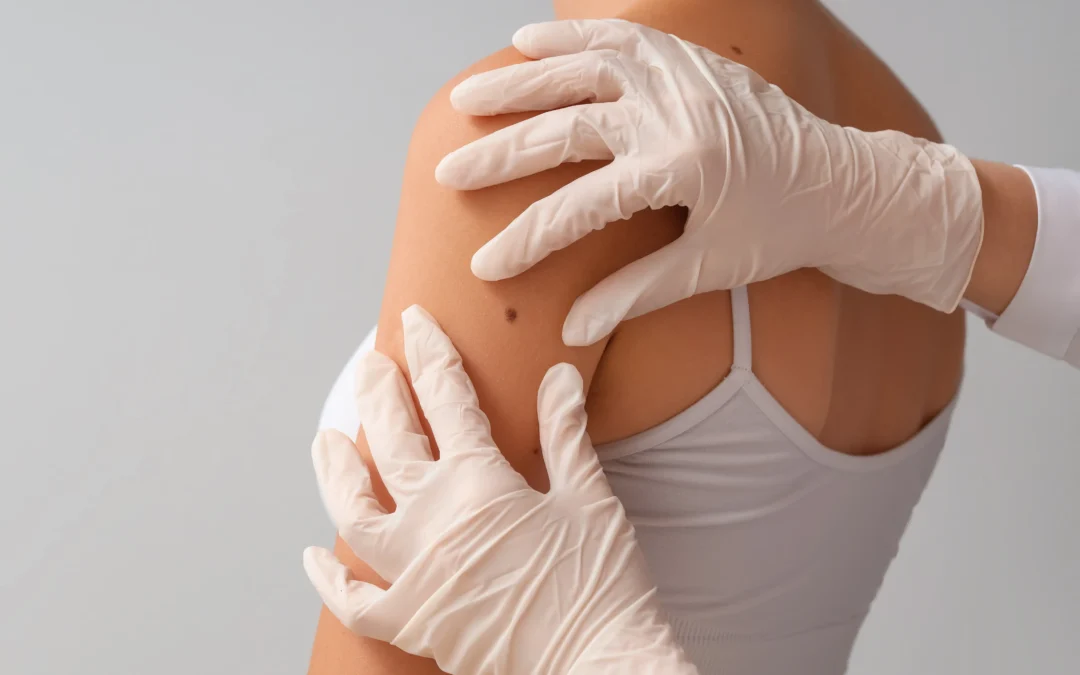As summer fades and we pack away our beach towels and sunscreen, one thing should remain top of mind: your skin health. After months of increased sun exposure, now is the perfect time to schedule a skin check to catch any signs of damage or abnormal growths early.
Whether it’s a freckle that’s changed shape or a spot that just doesn’t look right, skin checks are essential for detecting melanoma, basal cell carcinoma (BCC), and squamous cell carcinoma (SCC)—the three most common types of skin cancer in Australia.
The good news? You don’t need to wait for a doctor’s appointment. A qualified dermal clinician can conduct a thorough skin check and refer you for further treatment if needed.
Why Skin Checks Are Critical After Summer
Australia has one of the highest rates of skin cancer in the world, and UV exposure is the leading cause. Summer means more time outdoors, more UV damage, and a higher risk of changes to your skin.
Common risks from summer sun exposure:
- Cumulative UV damage leading to DNA changes in skin cells
- Increased freckles, sunspots, or pigmentation
- Development or growth of suspicious moles or lesions
Even if you’re diligent with sunscreen, sun damage can still accumulate over time. That’s why regular skin checks—especially post-summer—are vital for early detection and peace of mind.
What Are We Looking For?
During a skin check, a dermal clinician will examine your entire body (yes, even those places you forget to look) to identify any unusual spots, lesions, or moles.
Here’s what they’re looking out for:
-
Melanoma
The most serious form of skin cancer, melanoma can spread quickly if not caught early.
Warning signs:
- Asymmetrical shape
- Irregular borders
- Multiple colours
- Diameter larger than 6mm
- Evolving or changing appearance
-
Basal Cell Carcinoma (BCC)
The most common but least aggressive skin cancer. BCCs usually grow slowly and rarely spread.
Warning signs:
- Pearly bump or growth
- Flat, scaly patch
- Bleeds easily or doesn’t heal
-
Squamous Cell Carcinoma (SCC)
More aggressive than BCC and can spread if untreated.
Warning signs:
- Scaly red patch
- Rough, crusty lesion
- Can be tender or sore
Early detection of all three greatly increases the chances of effective treatment with minimal impact.
Can a Dermal Clinician Really Do My Skin Check?
Yes—absolutely.
Dermal clinicians are university-qualified skin health professionals who specialise in the assessment, treatment, and management of skin conditions, including sun damage, pigmentation, and pre-cancerous changes. Many dermal clinicians are trained in skin cancer surveillance techniques, including:
- Dermoscopy (a tool to magnify and examine skin lesions)
- Pattern recognition of suspicious moles and lesions
- Full-body mapping and photographic documentation
- Identifying lesions that need referral to a GP or dermatologist
They work closely with doctors and dermatologists, and can refer you immediately if anything suspicious is found. In many clinics, dermal clinicians are the first line of defence, helping you get answers faster—without the waitlist.
Don’t Wait. Get Checked.
Skin cancer is one of the most preventable and treatable cancers—if caught early. That’s why booking a professional skin check should be a part of your annual routine, especially after summer.
So whether you’re fair-skinned, freckled, or just spent a little more time in the sun than you should have, book in with a dermal clinician today. Your skin will thank you later.
Protect your skin. Detect early. Live confidently.
Book your post-summer skin check now with a qualified dermal clinician.
